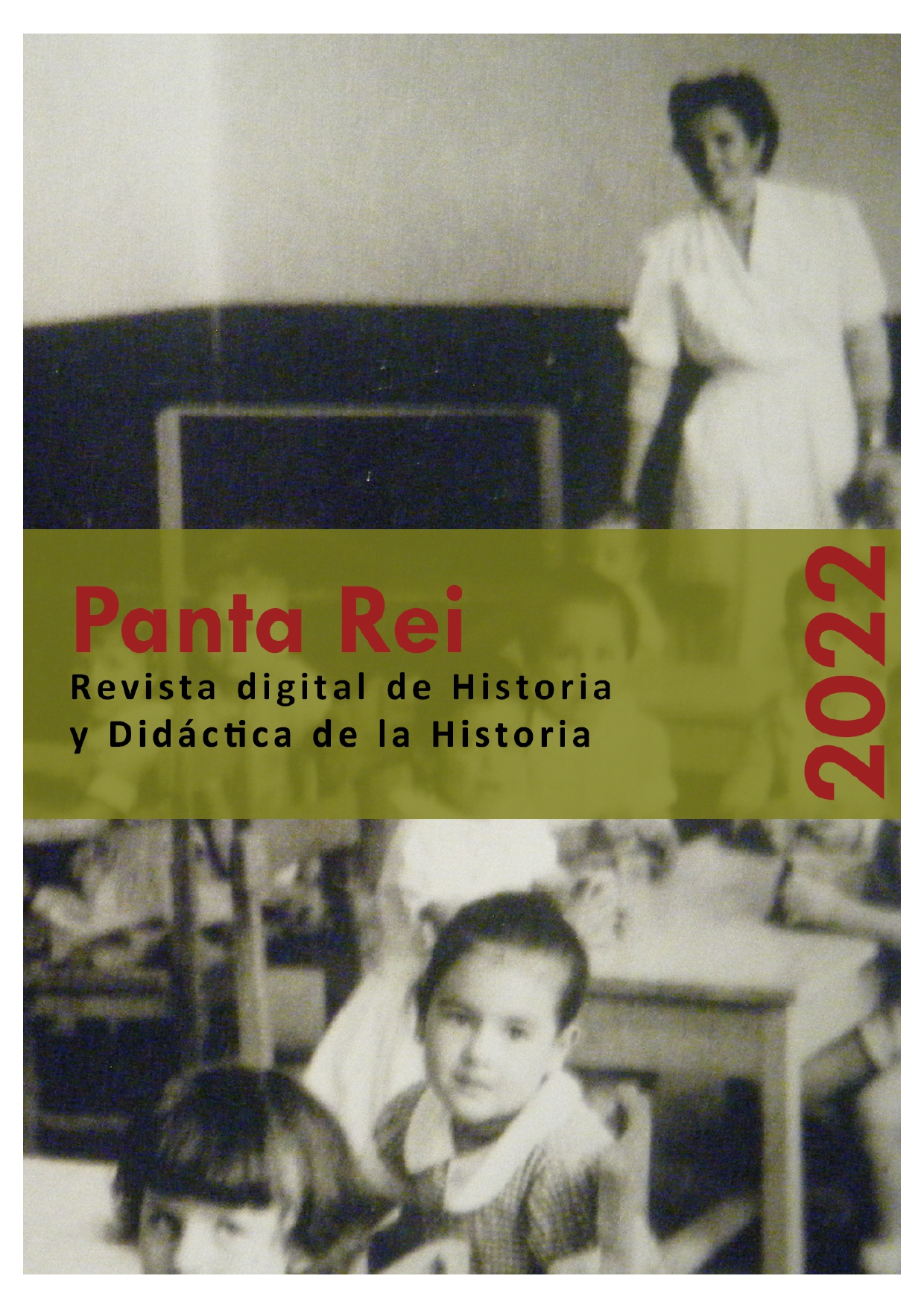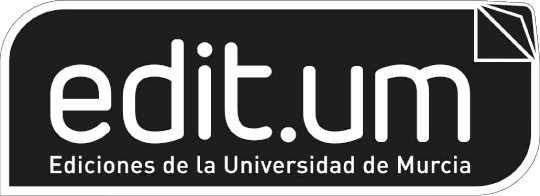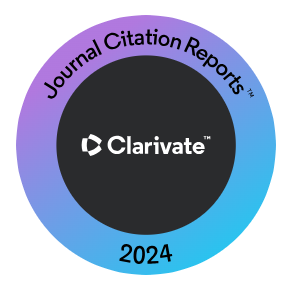Greece: The Myth of Krypho Scholeio [“Secret School”]. Issues of Historical Understanding and Historical Culture
Abstract
This is an analysis of fifty questionnaires given to first-year students of the Department of Primary Education of the University of Ioannina, on the subject of the ’Secret School’ (Krypho Scholeio), and focuses on issues of epistemology and historical culture (Grever & Adriaansen, 2017; Stathis, 2004). The research is supported by previous empirical research regarding the evaluation of conflicting historical narratives by pupils and students (Afandi & Baildon, 2015; Chapman, 2016). The findings favor the actual existence of the ’secret’ school while students/participants, when asked how they interpret the existence of different views on this issue, referred more to the existence of “bias” in relation to the past, and to a lesser extent, to different “perspectives”, representing different groups and interests, either in the past or the present.
Downloads
-
Abstract901
-
PDF480
-
EPUB410
References
Afandi, S. & Baildon, M. (2015). Anxieties over Singapore Students’ conceptions about history and the past, Research and Practice in Humanities and Social Studies Education, 4(2), 36-47.
Angelou, A. (1997). Krypho scholeio, chroniko enos mythou [The secret school, the chronicle of a myth]. Estia.
Ankersmit, F. (1987). Narrative logic. A semantic analysis of the historian’s language. University of Groningen.
Athanasiadis, H. (2015). Ta aposyrtheda vivlia [History Textbooks Withdrawn]. Alexandreia.
Athanasopoulou, A. (2008). Diavazodas gia tin paideia epi Tourkokratias sta scholika encheiridia istorias tis defterovathmias ekpaidefsis [Reading about education in the Turkish occupation era in the secondary education history schoolbooks]. In A. Andreou, IDidaktiki tis Istorias stin Ellada kai I Erevna gia ta Scholika Encheiridia [Teaching History in Greece and Research in School Textbooks] (pp. 233-268), Metaichmio.
Barton, K. & Levstik, L. (2004). Teaching history for the common good. Lawrence Erlbaum Associates.
Bouzakis, S. & Kantartzi, E. (2019). Ta scholika echeiridia istorias tou Dimotikou scholeiou 1917-2017 [History textbooks for the Primary school 1917-2017]. Gutenberg.
Carretero, M., Berger, S., & Grever, M. (2017). Palgrave handbook of research in historical culture and education. Palgrave.
Chapman, A. (2016). Developing students’ understanding of historical interpretations. Edexcel.
Corbin, J. & Strauss, A. (2008). Basics of qualitative research. Techniques and procedures for developing Grounded Theory. Sage.
De Groot, J. (2009). Consuming history. Routledge.
Efthymiou, M. (2018). I istorikos Maria Efthymiou analyei osa de mas emathe to scholeio gia tin epanastasi tou 1821 [Historian Maria Efthymiou analyses whatever the school has not taught to us about the 1821 revolution], dinfo.gr, 20-3-2018, dinfo.gr/η-ιστορικός-μαρία-ευθυμίου-αναλύει-όσ/, an interview, accessed on the 7th July 2022.
Efthymiou, M. (2020). I istorikos Maria Efthymiou katariptei mythous tou 1821[The historian Maria Efthymiou deconstructs myths about 1821], The Best, 25-3-2020, a press portal, https://www.thebest.gr/article/522690-, an interview, accessed on the 15th July 2022.
Erdmann, E. (2008). Historical consciousness-historical culture: Two sides of the same medal? International Society for History Didactics. Jahrbuch, 2006/2007, 27-38.
Erickson, F. (1986). Qualitative methods in research on teaching. In M. Wittrock (Ed.), Handbook of Research on teaching (3rd edition), pp 119-161. MacMillan.
Etikan, I., Musa, S. A. & Alkassim, R. S. (2016). Comparison of convenience sampling and purposeful sampling, American Journal of Theoretical and Applied Statistics, 5(1), 1-4.
Grever, M. & Adriaansen, R. (2017). Historical culture: A concept re-visited. In M. Carretero, S., Berger, & M. Grever, (eds), Palgrave handbook of research in historical culture and education (pp. 73-89). Palgrave.
Green, A. (2018). Professional identity and the public purposes of history. In M. Demantowski (ed), Public history and school (pp. 175-188). De Gruyter Oldenburg.
Holmes, D. (2020). Research positionality – A consideration of its influence and place in qualitative research. International Journal of Education, 8(4), 1-10.
Husbands, C. (1996). What is History Teaching. Open University Press.
Körber, A. (2015). Historical consciousness, historical competencies-and beyond? Some conceptual development within German history didactics. PeDOCS, 1-56. DOI: 10.13140/RG.2.1.1524.9529
Kotjabopoulou, E. (2018). Challenging myths in the museum. The Acheron oracle of the dead in Ioannina. MuseumEdu, 6, 23-80.
Koulouri, C. (2020). Foustaneles kai chlamydes [‘Kilts’ and chlamys]. Alexandreia.
Kremydas, V. (2018). O Vasilis Kremydas katariptei enan enan tous mythous tou 1821 [Vasilis Kremydas deconstructs one by one the 1821 myths]. Lifo, 24-3-2018, https://www.lifo.gr/culture/vivlio/o-basilis-kremmydas-katarriptei-enan-enan-toys-mythoys-toy-1821-ki-ohi-mono-kryfo, an interview, accessed on the 15th of July 2022.
Kühberger, C. (2018). The private use of public history and its effects on the classroom. In M. Demantowski (ed.), Public history and school (pp.69-83). De Gruyter Oldenburg.
Laiou, S. & Sarigiannis, M. (2015). Othomanikes afigiseis gia tin elliniki epanastasi [Ottoman narrations about the Greek revolution]. National Research Council, Greece.
Lee, P. (2004). Understanding history. In P. Seixas (ed.), Theorizing historical consciousness (pp. 129-164). University Toronto Press.
Lee, P. (2005). Putting principles into practice: understanding history. In Donovan et al (eds.), How students learn (pp. 31-77). National Research Council.
Lee, P. (2007). From national canon to historical literacy. In M. Grever & S. Stuurman (eds.), Beyond the canon (pp. 31-48). Palgrave.
Lee, P. & Howson, J. (2009). “Two out of five did not know that Henry VIII had six wives!”: History education, historical literacy and historical consciousness. In L. Symcox & A. Wilschut (eds.), National history standards (pp. 211-264). IAP.
Liakos, A. (1998). Alkis Angelou, Krypho Scholeio, [Alkis Angelou, The secret school], a review. Mnimon, 20, 291-297. https://doi.org/10.12681/mnimon.680
Maggioni, L. et al. (2009). Walking on the borders: a measure of epistemic cognition in history. The Journal of Experimental Education, 77(3), 187-214.
Martin, D. (2018). Teaching, learning and understanding of public history in schools as challenge for students and teachers. In M. Demantowski (ed.), Public history and School (pp. 84-96). De Gruyter Oldenburg.
Millas, H. (2019). Athoos thnikismos [Innocent nationalism]. Alexandreia.
Salvanou, E. (2021). Pos mathainoume istoria horis na ti didachthoume [How do we learn history without having been taught?]. Asini.
Stahthis, P. (2016). To 1821 sto scholeio [1821 at school], I Efimerida ton Syntakton, a newspaper, 26-3-2016, https://www.efsyn.gr/arheio/fantasma-tis-istorias/6349
Stathis, P. (2005). Modern history, notes, published for the Tourist Guides School of Iraklion.
Stoel, G. et al (2017). Measuring epistemological beliefs in history education: an exploration of naȉve and nuanced beliefs. International Journal of Educational Research, 83, 120-134.
Theodoropoulos, V. (2018). Oi Tourkoi kai emeis [The Turks and ‘we’]. Kathimerini.
VanSledright, B. (2008). Narratives of nation-state, historical knowledge, and school history education. Review of Research in Education, 32, 109-146.
Wansink, B. et al. (2016). The certainty paradox of student history teachers: balancing between historical facts and interpretation. Teaching and Teacher Education, 56, 94-105.
Wertch, J. (2000). Is it possible to teach beliefs, as well as knowledge about history? In P. N. Stearns, P. Seixas, & S. Wineburg (eds.), Knowing, teaching & learning history: national and international perspectives (pp.38-50). New York University Press.
Wineburg, S. (2001). Historical Thinking and Other Unnatural Acts. Temple University Press.
Woodard, K. (2013). The digital revolution and pre-collegiate oral history. The Oral History Review, 40(2), 325-331.
Copyright (c) 2022 Eleni Apostolidou

This work is licensed under a Creative Commons Attribution-ShareAlike 4.0 International License.
All the contents published in this journal are subject to an Attribution-ShareAlike 4.0 International (CC BY-SA 4.0) Creative Commons License. You are free to: Share — copy and redistribute the material in any medium or format, Adapt — remix, transform, and build upon the material, for any purpose, even commercially. Under the following terms:
Attribution — You must give appropriate credit, provide a link to the license, and indicate if changes were made. You may do so in any reasonable manner, but not in any way that suggests the licensor endorses you or your use.
ShareAlike — If you remix, transform, or build upon the material, you must distribute your contributions under the same license as the original.
Full text of the license is available in: Creative Commons License 











